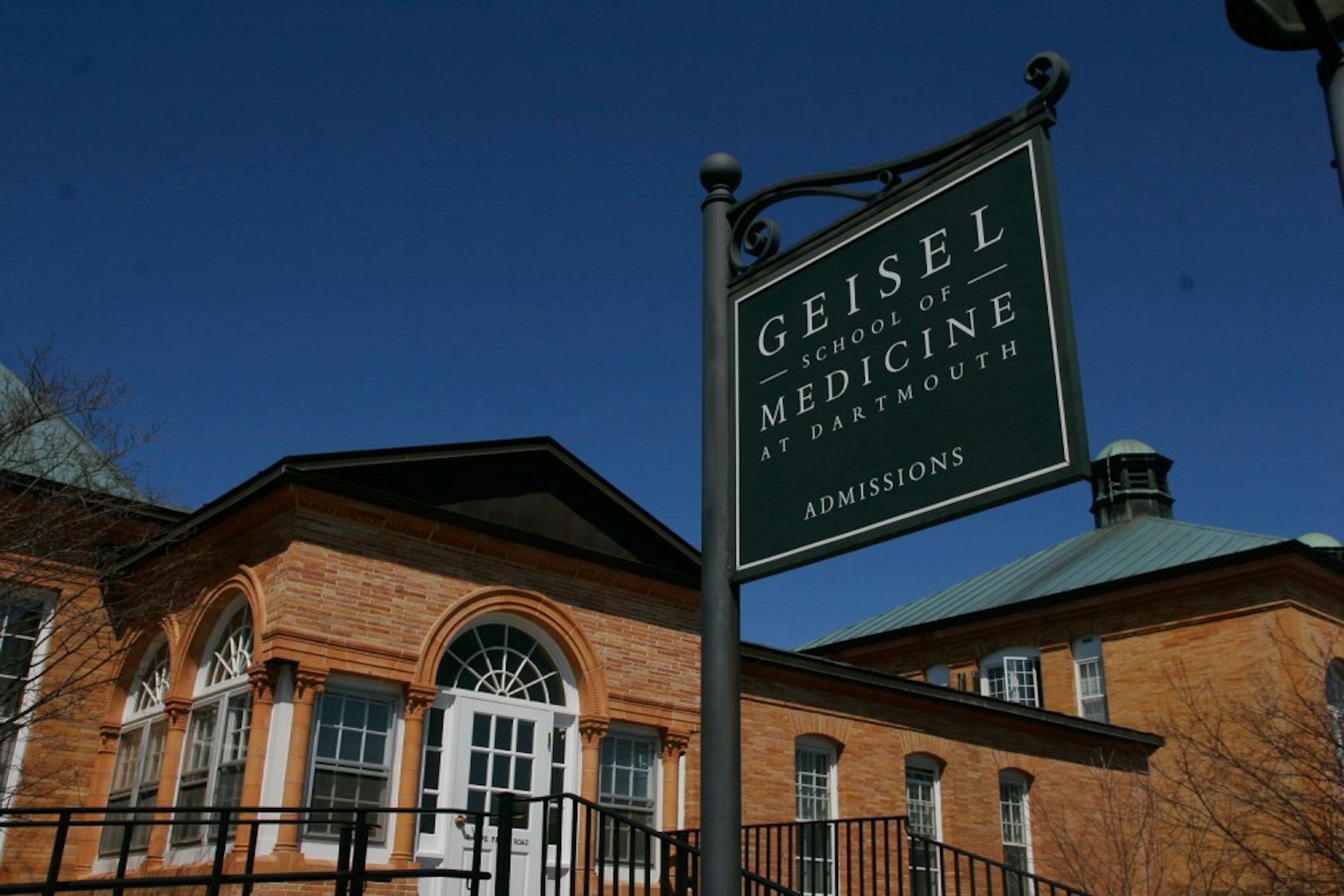The Geisel School of Medicine will undergo an overhaul due to budgetary constraints, College President Phil Hanlon announced to students, faculty and staff at a town hall meeting in Kellogg Auditorium yesterday. While specific details have not been finalized pending faculty input, Geisel interim dean Duane Compton has developed a three-year plan to stabilize the budget and reallocate resources within the medical school, Compton said in an interview before the town hall.
The three-year plan proposes that resources be deployed to Geisel’s strongest programs, such as those in the areas of health care delivery science, infectious disease and neuroscience, Compton said in an interview before the town hall. In order to reallocate funds to more successful programs, Geisel will need to cut funding in some areas.
“If we do have to make reductions in force in some areas, we will do our best to make sure it comes through retirements and attrition rather than layoffs, but we can’t guarantee there won’t be layoffs,” Hanlon said in an interview before the town hall.
The changes at Geisel were sparked by difficult financial times — the medical school currently runs a $26 to 28 million annual deficit, and its yearly budget dropped from $275 million in the 2013 fiscal year to about $250 million in 2014. Last April, Compton announced that non-union faculty and staff would not receive salary increases, but would instead be eligible for bonuses based on work evaluations.
Under the proposed plan, the deficit would be reduced by $15 million, taken from operating fees, Compton said at the town hall.
Hanlon attributed the budgetary issues to a national trend of decreasing revenue streams for academic medicine. Hanlon said at the town hall that medical centers across the country are seeing a constraint in resources, citing the 50-percent drop in the National Institute of Health’s budget in inflation-adjusted dollars over the last decade as an example.
Compton said in an interview that the amount of money devoted to medical centers has remained flat even as costs rise. Dartmouth has received approximately the same amount of NIH research for the last seven years, and many other schools have lost funding, he said.
Hanlon said in an interview that the cuts should not be interpreted as a sign that the College has shifted focus from Geisel, saying it is an important part of Dartmouth as an institution, and “we are completely committed to making it an academically successful and excellent place.”
Despite the cuts, Compton said in an interview that the goal to make Geisel the best medical school in the country remains, though he distanced himself from the Geisel 2020 Strategic Plan for Excellence.
“We’re not holding onto the moniker of ‘Geisel 2020’ as our strategic plan anymore, but the goals within that are still very much in our sights,” he said.
The Geisel 2020 Plan was announced in 2011 by former Geisel dean Wiley “Chip” Souba, with the goal to propel Geisel into the top 20 medical schools by 2020. Geisel ranked 37 in the U.S. News 2016 best medical schools list, after peaking at 31 in the 2013 rankings. For primary care, Geisel ranked 29th in the 2016 list, dropping from its spot at 18 in the 2015 list.
Compton said that some tactical components of the plan have needed to be adjusted for the current financial climate, but “the aspiration for that plan is very much alive.”
Going forward, Geisel will emphasize a commitment to a four-year medical school, research in basic science, translational science — which applies findings in theoretical research to help patients — and health care delivery, Compton said in the town hall.The reorganization will redistribute responsibilities between the Dartmouth-Hitchcock Medical Center and Geisel and shift financial oversight for joint functions to DHMC, Compton said.
Compton said that he could not pinpoint which specific programs will receive increased funding, as the reorganization requires further fine-tuning.
Non-clinical programs will continue to be Geisel’s responsibility, whereas clinical activities will be left to DHMC leadership. Graduate medical education will fall under both Geisel and DHMC, depending on the program, and the College will implement joint oversight for programs or initiatives in which both sides have a shared interest, such as the Norris Cotton Cancer Center and projects in health policy and delivery science.
The plan also calls for an increase in interdisciplinary efforts between Geisel, Dartmouth’s other graduate schools and the school of arts and sciences, Compton said.
Additionally, Geisel will be divided into three divisions to segment research activities — basic biomedical research, translational research and healthcare delivery research. When asked about how faculty will be split into the divisions, Compton said that he was in favor of self-designation. When populating the new Williamson Translational Research Building at DHMC, the plan for which was finalized in June 2012, Compton said that the College would try to keep professors with good working relationships together.
Compton also said that the College will continue to spend money on faculty recruitment.
In early September, the framework was presented to the Board of Trustees, which supported the plan. Compton said that Geisel’s senior leadership group will hold town halls and discussions over the next month in order to “vet [the proposal] with the faculty” and gather “stakeholder input.”
The Board of Trustees will convene in November to review the plan after it has been adjusted with the faculty and community input.
In a question-and-answer session following the town hall, Provost Carolyn Dever said that the budget cuts would also help in Geisel’s dean search next year.
“In order for Geisel and Dartmouth to be able to compete for the very best deans out there, we have to present candidates with the strongest possible school,” she said. “Certainly having a structural deficit on an annualized basis is not a good description of the strongest possible situation.”




